We caught up with the brilliant and insightful Alex Katz a few weeks ago and have shared our conversation below.
Alex, thanks for taking the time to share your stories with us today Risk taking is something we’re really interested in and we’d love to hear the story of a risk you’ve taken.
I left an abusive home at 17 and completely cut contact with my parents. I then put myself through college by working 80 hour weeks. This was a huge risk because I moved to a new place as a minor with no support system or guidance. It seemed like less of a risk at the time, because I thought that school would provide housing and a support structure. I didn’t realize at the time that I wouldn’t be able to live in my dorm room for 4-5 months during the year, which led me to couch surf, live out of my junkyard car, or spend nights in the library. I struggled with access to housing and food, depression, an eating disorder, and even broke my back in the middle of it all, but still graduated with a double major in Psychology and Spanish. I severely lacked resources, but gained an infinite amount of resourcefulness in the process. I decided that I wanted to help others in similar situations, so I pursued a Master’s degree in Student Development and Higher Education.
A few years later, I returned to the university I graduated from, this time as the Program Coordinator of a college access program for high school students in the state foster care system. I also started a support program for college students experiencing family estrangement and homelessness (“Independent Students”). During that time, I was also competing and coaching in the sport of American Ninja Warrior, and working as a personal trainer and group kickboxing instructor. I have always loved fitness, and after breaking my back in college, I wanted to learn everything I could about the human body and how to help others not only be stronger, but to move and live more functionally and with less pain.
At the start of the pandemic, I lost my full time job at the university, and my both my coaching jobs. I decided to take another risk. I quickly pivoted and used my experience to start my own full-time coaching, speaking and consulting business.
Taking the risk was definitely scary and uncertain, but I realized that desperately trying to find someone else to hire me was essentially using my skills to convince someone else to take a chance on me, instead of taking a chance on myself. That mindset shift helped me shed a lot of imposter syndrome and take actions that helped me create my own business that I’m still running full time three years later.
Starting my business was one of the best decisions I have ever made. As a coach, I provide holistic health, life, strength and behavior change coaching to folks all over the world, helping them develop a better relationship with food, themselves, and their bodies. As a speaker, I have spoken at some incredible events and was even featured as a Top Motivational Speaker to Watch in 2021 by Yahoo! Finance. I love using my professional experience to change people’s lives, and my story to help others find strength in theirs. In addition to my business, I also founded two nonprofits, and have been the Volunteer Director of a third for a few years. I absolutely love the work that I do and how I’ve been able to help so many people!
Through taking these risks, I have developed a lot of trust in myself to figure things out, even if I don’t yet know how or when, and this is a skill I love teaching! The journey hasn’t been easy, but each time the reward was definitely worth the risk.
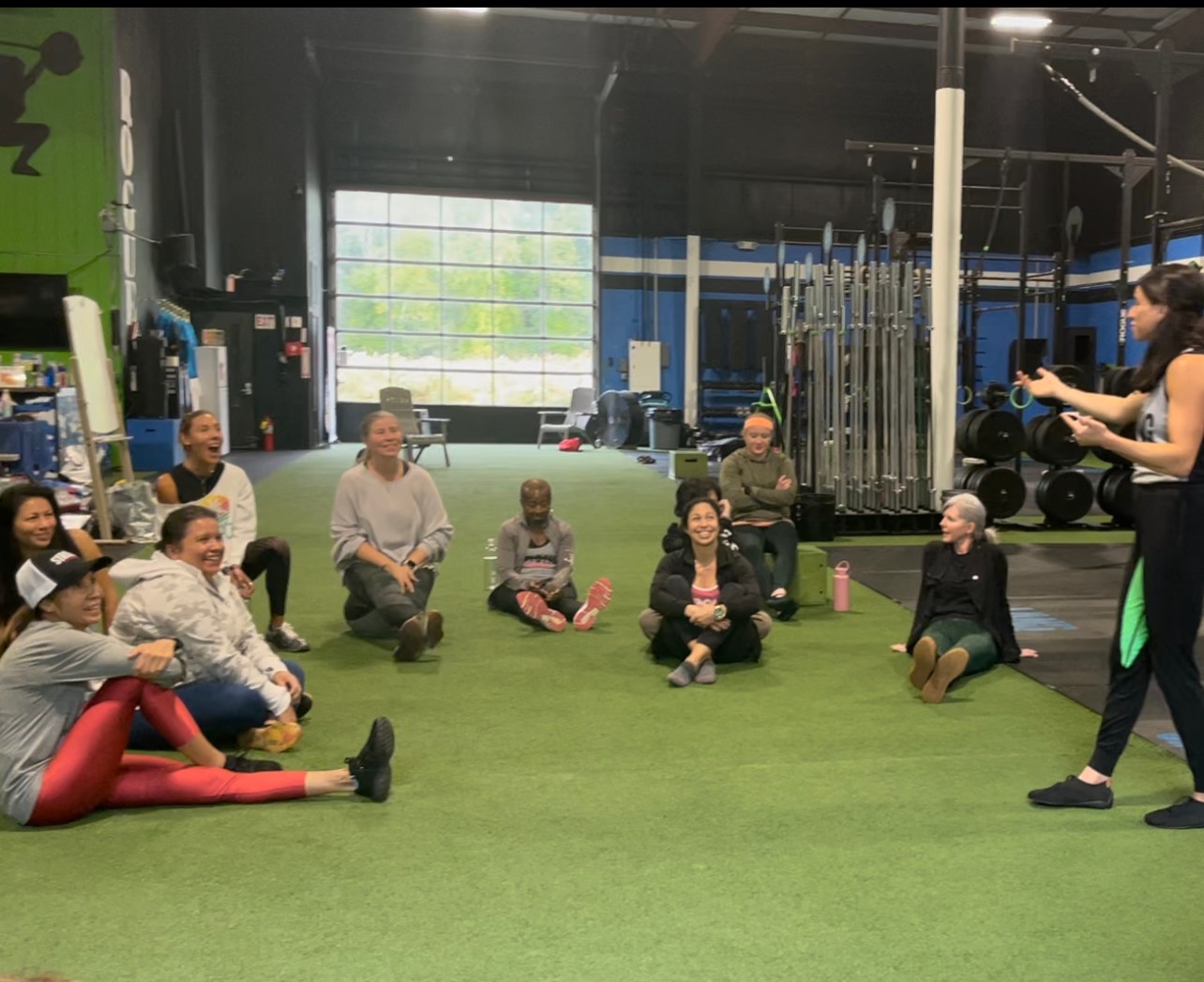
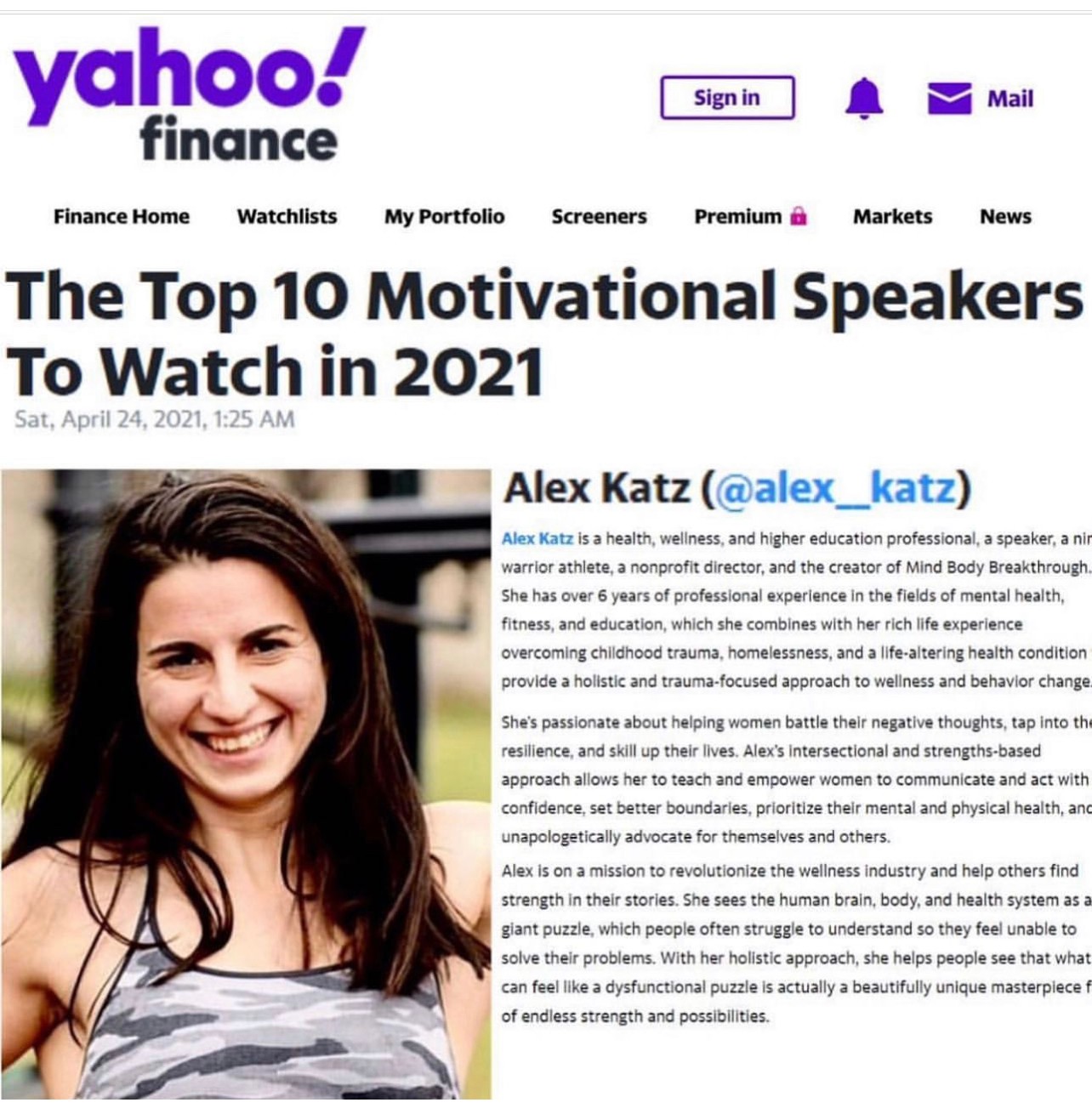
Alex, love having you share your insights with us. Before we ask you more questions, can you tell us more about your work?
My practice follows a holistic, strengths-based and trauma-informed approach to wellness and behavior change that helps clients find strength in their stories, communicate and act with confidence, and improve all aspects of their lives. My coaching has helped clients improve their health, leave toxic jobs and relationships, set boundaries, reduce pain, build strength, compete in new sports and more! My 100% virtual structure not only allows me to help folks all over the world, but it also allows my clients more flexibility to do sessions when and where works best for them! I am currently accepting new clients for one on one nutrition, fitness and life coaching!
I bring this same holistic approach, and my background in education, into my work as a public speaker. I have spoken for amazing organizations and events like Strong Fitness Magazine’s STRONGCAMP, The She Recovers Foundation, The Mental Health Empowerment Summit and more! I’ve also been able to combine my love for speaking and coaching through starting “Shred the Should Podcast”, which helps listeners “shred their should shame” so they can live happier, healthier and more authentic lives! I love speaking on topics like shredding should shame, burnout prevention, building resilience, overcoming adversity, creating confidence, self acceptance and more! I especially love speaking to college students and women’s groups!
For coaching or speaking inquiries, the best way to reach me is at [email protected] or through instagram!
Additionally, I am the Director of F.O.S.T.E.R Independence Foundation – a 501c3 organization which aims to reduce barriers to college retention for “independent” college students through scholarship and mentorship opportunities.
The FAFSA defines independent students as falling into one, or a few categories:
– previously or currently in foster care
– estranged from family as a result of domestic violence, emancipation, death or deportation
– experiencing homelessness
Independent students face a variety of obstacles to educational retention and success, such as but not limited to: lack of access to stable housing, food, resources (such as books, a computer, a car), emotional support and life guidance.
Our scholarship and mentorship programs aim to reduce the financial and personal barriers to success, and to ensure that all students have access to safe and consistent housing.
We also provide education to help Higher Education professionals develop trauma-informed resources and procedures for working with these students.
Anyone interested in receiving assistance, volunteering or requesting a training can email [email protected]
In addition to FIF, I am the founder of Texas Rescue Network – a young 501c3 nonprofit taking an upstream approach to the dog overpopulation, stray and abandonment issue in Texas. We focus on preventative measures such as providing more accessible spay, neuter and microchipping services; educational programming for schools and communities; breed specific and behavior training seminars, and support systems to provide additional resources to rescues.
When I moved from Connecticut to San Antonio, I was absolutely shocked to realize that I couldn’t leave my house without seeing stray, roaming, lost or dead dogs. Living in CT for almost 30 years, I could count on one hand the number of dogs I found on the streets. Once I started living in San Antonio, I saw that many dogs in a day, and knew I wanted to help. I also quickly recognized that the current approach to tackling this issue was an uphill battle, so I created a team to try something new, and I’m so grateful for the impact we’ve had and will continue to have.
For more information or to get involved, please visit www.texasrescuenetwork.org
Additionally, I have been the volunteer Director with Neighborhood Ninjas since 2019. During that time we created a national mentorship program, provided dozens of need based scholarships for ninja warrior training and competition, trained gyms in child safety and sexual abuse prevention, and are even building a ninja warrior playground in Wilmington Delaware!
To learn more about our programs, get involved, request a training, or help us build a playground, please visit www.neighborhoodninjas.org
I am so grateful to have created a life that allows me to pursue my passions and create meaningful change in the world. A few years ago I was in survival mode and never would have thought this would be possible. I hope my story can inspire someone to keep moving forward.
Let’s talk about resilience next – do you have a story you can share with us?
The way I usually tell the story, college is where my journey with homelessness began, but more objectively, my struggle with housing insecurity began before college: I didn’t always know if I would be allowed to come back “home” at night. My parent’s house wasn’t a place where I felt safe or even a place that I called home. My earliest memory of being kicked out was elementary school: I still remember running several blocks to my best friend’s house, where we created a secret bed for me out of cardboard boxes hidden in her basement. By high school, the varsity track locker room became my second home, and my locker held my most important possessions, “just in case”.
When I left, I knew I couldn’t go back, but wasn’t prepared for the barriers I’d face as a result. As I eagerly set up my dorm room, I didn’t realize my new “home” would be inaccessible during Thanksgiving (1 week), winter (6 weeks), spring (1 week) and summer breaks (3 months). During that time, I snuck into dorms, slept in the library or in my little junkyard car (it didn’t run but provided shelter), and crashed on friends’ couches. This went on for two years.
Determined to succeed, I worked 80 hour weeks on top of a double major, even loading trucks in a warehouse overnight. I often skipped classes to work and actually worked my first shift before the first day of classes. I ran on little sleep, 11 cups of coffee and 3 energy drinks a day, along with a fire inside me that refused to be extinguished.
Despite how hard I worked, it never seemed to be enough to break the cycle.
My sophomore year, I decided to open up to my academic advisor, who essentially told me that my priorities weren’t in the right place, that maybe college wasn’t for me, and I would never get into graduate school with my grades. My advisor may have had good intentions, but these comments both made me feel more alone and motivated me to work even harder.
The best piece of advice they gave me was to get more involved, or do more internships, rather than random paid jobs that didn’t relate to my major. I ended up getting a student teaching and peer counseling internship that would change the trajectory of my college experience and career, I just didn’t know it yet.
A few months later, in reference to how disorganized, messy and precarious my situation and life seemed, my internship supervisor drew me a picture of the “cliff of life”. The drawing portrayed me falling off the cliff, falling further and further from success. I remember my response: Falling off the cliff assumes I started at the top. What you see is me climbing my way up from the bottom after years of life knocking me down.
All of these could have been make or break moments for me, especially while struggling so much with my mental health, but instead they added fuel to the fire.
I eventually decided to take a chance on the Director of the internship program enough to explain my situation, and I’m so happy I did! This person became one of my biggest career and life mentors, and still is to this day to this day.
I ended up making Dean’s List my senior year, got into graduate school, graduated with my Master’s and eventually returned to work at my alma mater, determined to create the resources I needed as a student. Now, I’m a full-time business owner and director of several nonprofits, living across the country in my dream city of Austin, TX with my fiancé and two rescue pups.
When asked how I do so much or have become so “successful”, I tend to pause and ask who’s definition of success we are using… because ultimately my definition comes down to one simple question: Am I happy? More specifically: Am I living an authentic and intentional life?
At one point in my life, I based my “success” on the things that I achieved – I felt a lot of pressure to overcome my circumstances and not be another statistic. Ironically, at that point in my life, I was following all the things society said I “should” do to be successful, but I wasn’t happy. I struggled a lot with my mental health, and honestly sometimes felt like the world would be better off without me. Now, I not only believe that the world is better off with me in it, but it’s better off BECAUSE I’m in it. Everything I do now comes from a place of deep internal gratitude for the life I’ve created, and excitement over all the things I GET to do in life, even when it’s hard.
I credit my success to the following:
– Becoming resourceful and trusting myself to figure things out, without needing to know exactly *how*, *why* or *when*. I used to focus a lot on the resources I thought I lacked, and I couldn’t see the resourcefulness I had built. External resources come and go, but resourcefulness is a tool and a skill that I have been able to carry throughout many endeavors, and that is the greatest resource of all.
– Learning how to ask for help, self advocate and set boundaries. I realized this is part of being resourceful, and the more you do it, the easier it gets.
– Identifying and working through fears. I don’t fear failure because I make decisions independently of external opinions, and if something doesn’t go as planned, I choose to examine my process and learn from a strengths based perspective rather than doubt my abilities.
– Embracing bold, consistent, messy action, coupled with self compassion and patience.
– Using my voice and my story to not only change others’ lives but my own life – Shame and stigma only exist if we let them, and the more we can talk about the things we are thinking, feeling and experiencing, the less we feel like we need to hide, the more connected we become, and the less space shame and stigma have to grow.
I feel like I’ve created a second chance life for myself, and love using my platform as a professional public speaker, “Shred the Should” podcast host, nonprofit director and coach to help others tap into their resourcefulness, shred their “should shame”, build resilience and reclaim their lives.
I’ve built and am building a life that seemed so far away even five years ago, and it’s a great daily reminder that things can and do get better when you don’t give up fighting for your past, present and future self. You never know where you’ll be five years from now. Keep fighting for yourself.
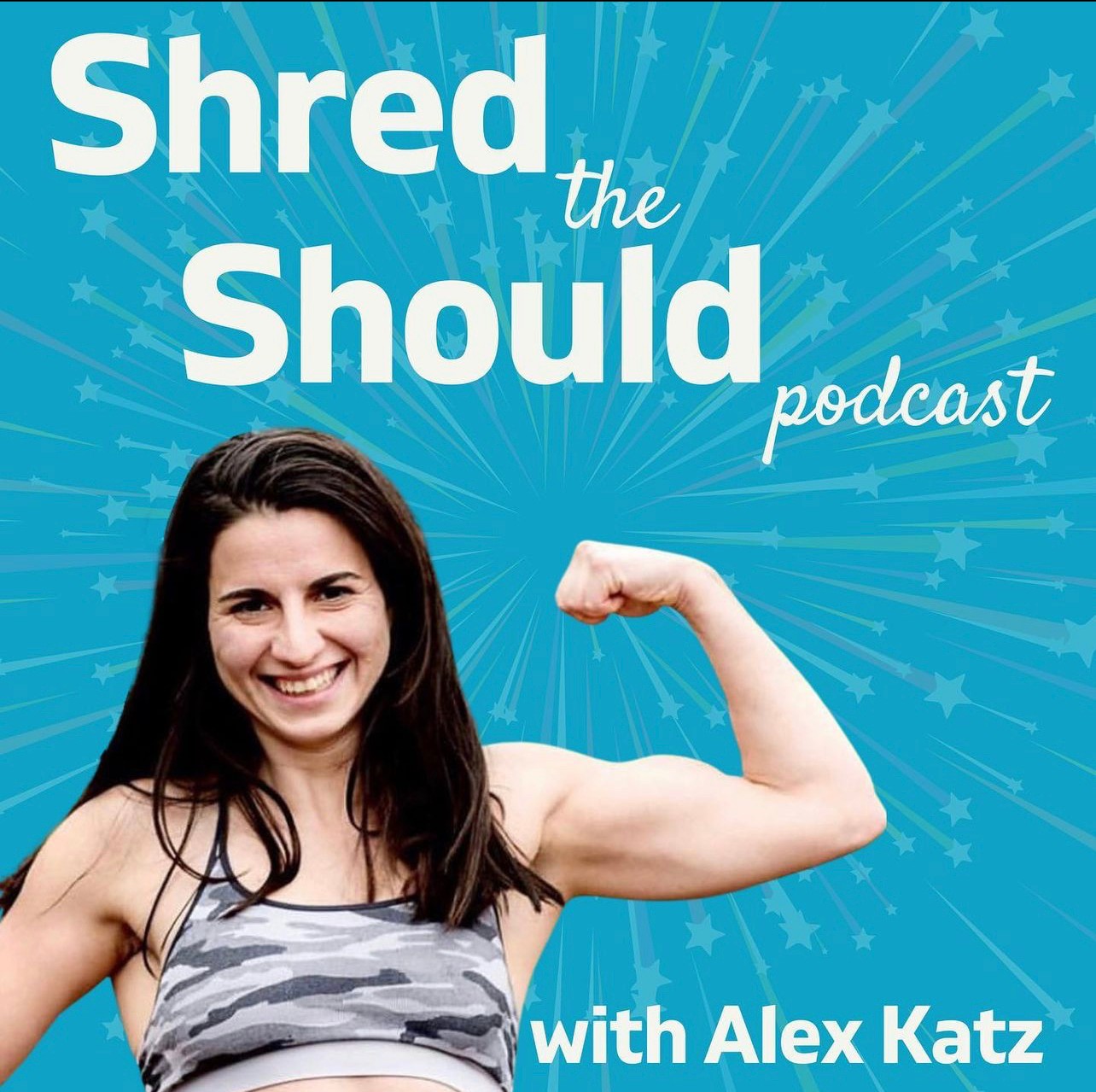
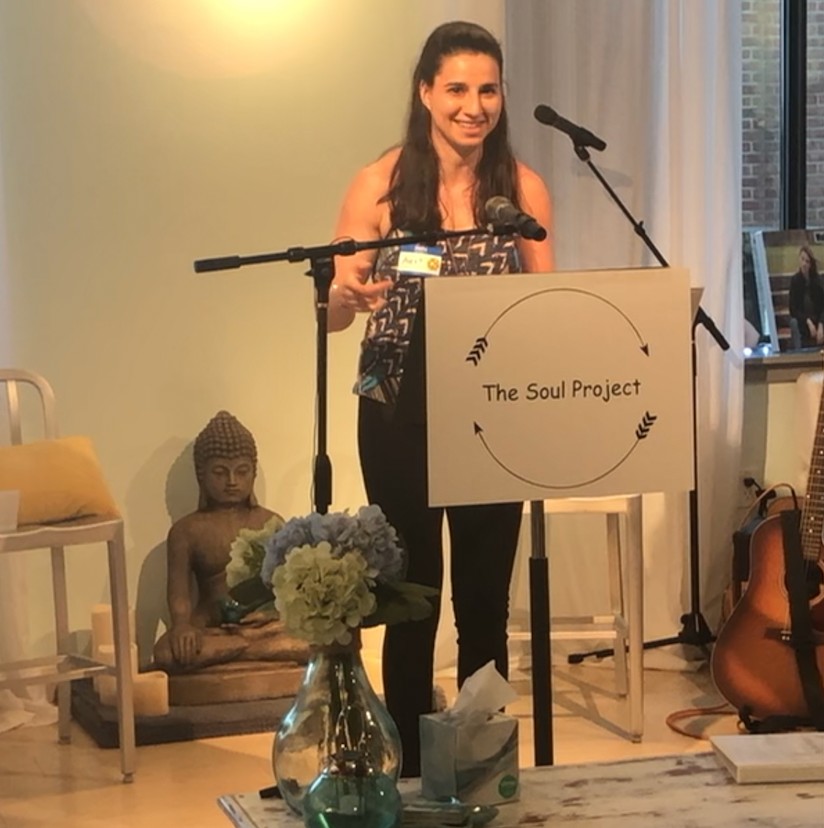
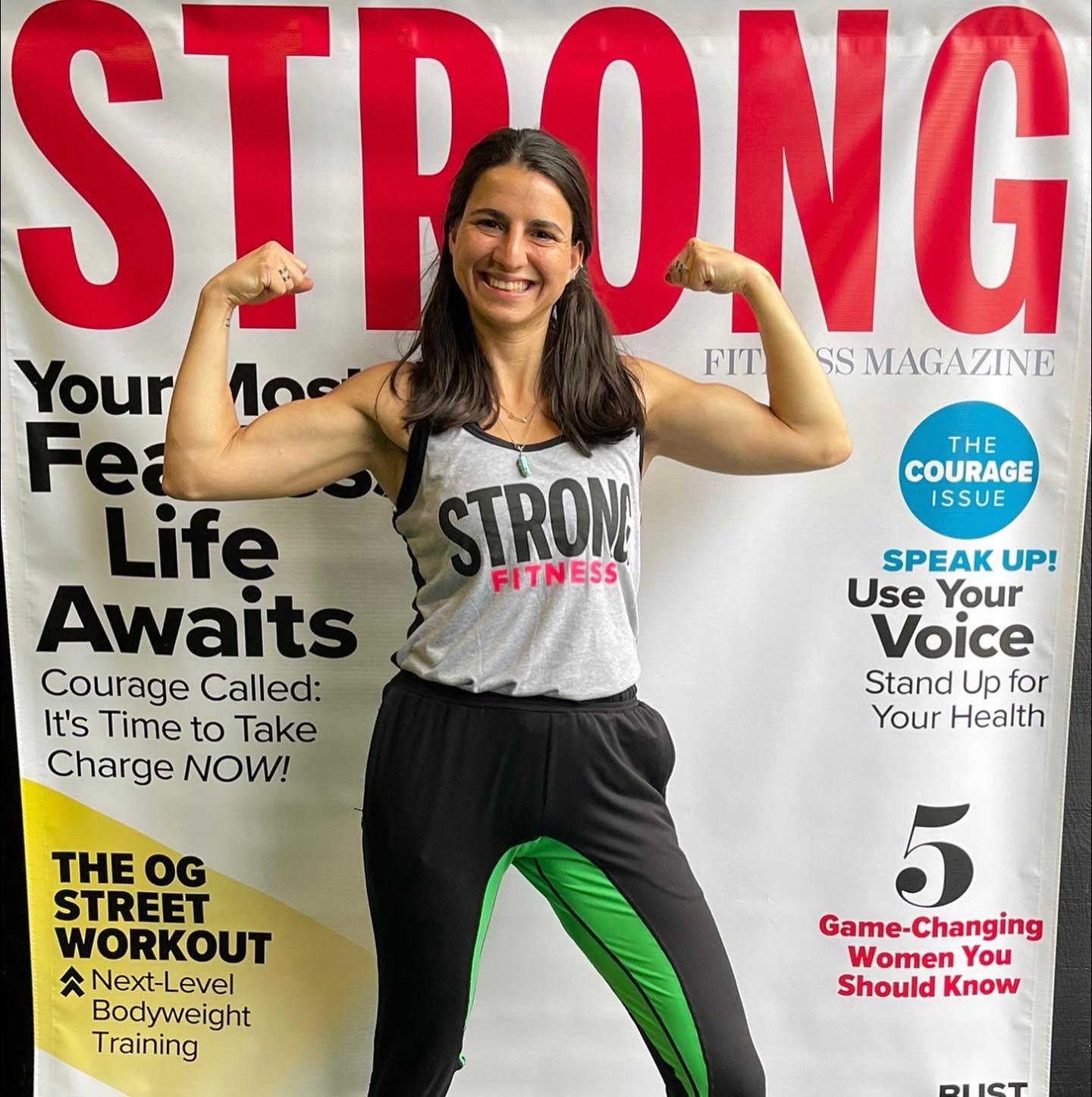
Learning and unlearning are both critical parts of growth – can you share a story of a time when you had to unlearn a lesson?
The lesson I’ve learned / unlearned that has had the most positive impact on my mental health and quality of life – Shred the Should.
My life changed when I let go of and unlearned everything I thought I “should” think, do and be in order to be happy, successful and loved.
In the process, I learned true self love and acceptance. As human’s we are wired for connection, which leads us to seek approval and validation from others. I’m not saying that seeking external validation or listening to what others say you should do is wrong, but the question is whether you rely on that validation, whether you’re able to feel good about your choices and progress if others disagree or don’t see it, and if you are able to internally motivate and validate yourself.
Growing up, I tried to do everything “right” or “perfectly”. I thought this would bring me love and safety. I think a lot of perfectionists grow up with similar beliefs. In reality, what does that even mean? Who decides what “right” looks like? The person you’re seeking validation from? Again, why give someone else that power?
Relying on external validation is like playing limbo. You’re letting someone else hold and constantly move the bar as you base your self worth on whether or not you successfully made it under. You’re also more likely to end up in situations where you feel unfulfilled and unhappy chasing what you think you “should” do instead of what you want to do, and feel guilt or shame for prioritizing your needs. This “should shame” then takes our energy away from the very thing we think we should be doing, and we end up not being able to put our best self forward. It’s a vicious shame cycle.
As I mentioned, we are all wired to want love and safety, which includes external validation to some extent. We just can’t rely on it or base our self worth on it because ultimately, the only person we have control over is ourselves.
Abusers and manipulators love to move the bar as a control tactic. They promise you that all you have to do to earn their love is to successfully make it under the bar. They move the bar as soon as you finish the task, or maybe even while you’re still bending over backwards. Then they find a reason why you weren’t good enough, why you need to try harder, or why they didn’t actually move the bar. True love is not earned or conditional. Stop letting others make you feel like you “should” be someone else to be worthy of love.
Diet culture and the fashion industry work similarly. I always ask millennials to think back to when most of us shaved our eyebrows off in the early 2000s to “fit in”, only to find out that a few years later, thin eyebrows would be out and thick eyebrows would be back. Or how many women tried to be stick thin only to find out that “thiccc” bodies are now in. Your body is not a fashion trend. Stop letting society hold the bar, tell you that you “should” look a certain way, and determine how you feel about yourself.
The bar is always moving and your self worth and confidence will eternally fluctuate until you take the bar back.
So, I took the bar back. In the process I learned how to separate my voice from all the voices that have told me who and what to be my whole life. I learned to set intentions and create actions that aligned with who I wanted to be. I learned to celebrate small wins, set boundaries and create a life for myself that no one else needs to understand or approve of.
Contact Info:
- Website: www.alexkatzcoaching.com
- Instagram: www.instagram.com/iamalexkatz
- Linkedin: www.linkedin.com/in/alex-katz14
- Other: www.neighborhoodninjas.org www.texasrescuenetwork.org www.fosterindependencefoundation.org/about
Image Credits
Kristie Gillooly Dean


